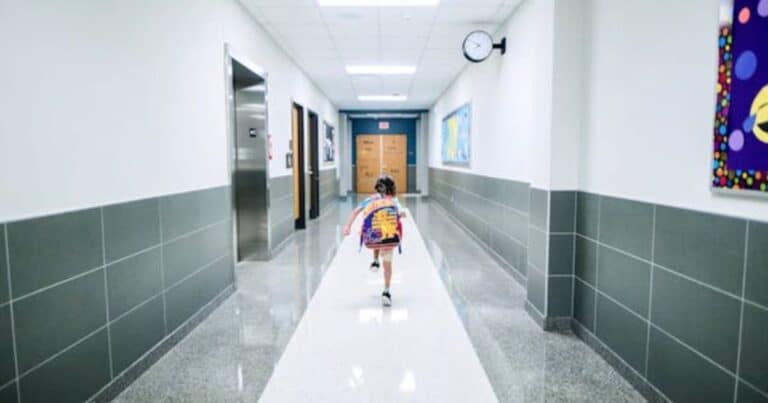
Ah, the joys of homework! As a seasoned mum who has weathered countless maths meltdowns and essay-induced tears, I understand the struggle of helping your child with homework.
It's like embarking on an epic quest, armed with nothing but a sharpened pencil and an unwavering determination to conquer the mysterious realm of quadratic equations and spelling quizzes.
Having seen two children through their school years, I'd now love to share my hard-earned wisdom and battle-tested strategies.
In this article, I will unveil eight ideas that have actually worked in my ongoing mission to survive homework time with my sanity intact.
Let's talk about helping your child with homework to make it less chaotic, more manageable, and calmer for the whole household.
Create a homework haven
First thing first, set up a dedicated space that's just for homework. It has to be a pleasant, distraction-free, organised space with room for just the right amount of clutter to help your kid focus on their lessons.
Think neutral tones to create a calming effect, with a pop of colour to add life to the space. Neatly labelled storage, stocked school supplies, and lighting with glare protection are homework station staples.
If you have the budget, consider investing in a height-adjustable desk that allows your child to stand now and then. Studies show that standing desks don't just increase productivity. More importantly, they're good for your kid's posture and overall health. They're already sitting a lot in school, so offering a sit-stand workstation can help enhance their wellbeing.
Lastly, don't forget the temperature! A quick Google search reveals that the perfect temperature for productivity is 22 degrees Celsius. Too hot or too cold can decrease your child's ability to absorb information. Regulate the temperature in their homework station for optimal results.
Listen to music (it can help)
When I was a kid, my mum heard through the grapevine that classical music would make me smart. So, she had me listen to Mozart and Brahms on repeat when I studied. (I wonder if it helped.)
Today, our kids have heaps more options. Aside from classical music, ambient, instrumental rock, jazz, and nature sounds have also been found to help with concentration. The effect of different genres is different from person to person, so experiment with which types of music work best for your kid. Fortunately, you can easily find hours-long study music on YouTube and Spotify.
Since you can't control which types of sounds will help your child concentrate and think, one thing you should pay attention to is the loudness. The rule is to keep it at a background volume. Too loud and your child can be distracted, countering the benefits of listening to music.
Take yoga breaks
All work and no play make studying boring. Study breaks are crucial to refresh and rejuvenate your kid's mind, and yoga is a superb solution to counter mental and physical fatigue.
My kids were pretty late to practising yoga; my eldest only started when she was a senior. But even in that short time, I have noticed the benefits of this ancient practice to their grades.
Their concentration increased while they remained relaxed. My youngest swore by the eye exercises she did between reading or staring at the computer screen to help with her vision and reduce her headaches. More importantly, yoga improves sleep, which is vital for every student.
It's not just yoga, though. In general, working out helps boost your child's mood and increase their motivation to study. So, if they're not into yoga (yet), doing stretches or light cardio for a few minutes are excellent alternatives for study breaks.
Make it a game
As a mum, I have always refused to make my daughters compete with each other academically. But I recognise that they both enjoyed gamifying their studies in entirely different ways.
Between the two of them, my eldest was more competitive and highly motivated with rewards. At the beginning of the term, we agreed on a target grade and reasonable reward she wanted. She would get her small reward when she reached her target grade at the end of the term. Looking back, I believe the system helped teach her about having goals and working hard to get them.
My youngest, on the other hand, grew up with video games and enjoyed the idea of "levelling up." We set up a system where she started out as an "Apprentice." She could only advance to the next level upon completing her tasks until she reached "Master." Personally, I like this system better, since she competed only with herself.
There are heaps of ways you can turn homework into a game. But don't overdo it with the rewards that your kid is only motivated by external gains.
Switch roles (let your child teach you)
Another simple yet important thing I've found seeing through my children's school years is that asking, "What did you learn today?" at the end of the day makes all the difference. It made my kids excited to share their lessons. I would often probe them with why's and how's to subtly push them to challenge their knowledge.
Even now that my daughters are older, they still excitedly share new things they have discovered from others or on their own.
Not only does teaching demonstrate how much they know, but more importantly, how deeply they understand the subject. As Seneca said, "When we teach, we learn."
Helping your child with homework (cont.)
Offer rewards and incentives
When I was in grade school, my mum would buy my favourite glazed donut when I got a majority of A's and no grades less than B- in my report card. As my interests changed in high school, my reward became craft supplies.
I have briefly touched on this strategy earlier. Rewards and incentives motivate children to do their best in school. Rewards, especially those given immediately, teach kids to do more of what they can get something out of.
Note that the reward doesn't have to be money or toys. It can be praise, a high-five, or a special meal to celebrate their accomplishments. You can also reward them with great memories by doing activities they enjoy.
Remember, you don't want your child to only work hard because of the promise of a gift.
Further reading: 8 Fab rewards charts to help kids reach their goals.
Incorporate real world connections
One of my favourite ways to help my kids with homework was taking them to the grocery. For a lesson in practical maths, we would find the most value for our buck based on different criteria like volume or weight. For a health lesson, we would check ingredient lists and nutrition labels.
Everything your children study in school are connected to the real world. After all, our kids don't study just for the sake of schooling. The end-result should be that they can navigate the real world effectively and become productive citizens using what they have learned in school.
There must be something in lakes, mountains, a trip to the city, riding public transportation, and meeting other people that they can connect to their schoolwork. Cooking, eating, and washing the dishes also carry valuable lessons in maths, sciences, language - everything!
Incorporating the real world in their lessons is not just a fun strategy with homework but also allows them to see the big picture of education.
Celebrate the wins
Finally, remember to celebrate! Studying is hard work; every accomplishment is a step toward your child's goals. Whether big or small, show appreciation for your kid's efforts by giving them something special.
Celebrations don't have to be huge. As I mentioned before, it was a glazed donut for little me. You can bake a cake, take them to the movies, or go to the beach. Don't snub the impact of heartfelt praise, a kiss, or a big hug to show appreciation for your kid's hard work.
In addition, be mindful not to let them think they are only worth celebrating when they are at the top. I love this line a mum said to her overachieving kid in a Korean drama I saw a few years back:
"I-jun, I'm so proud that you won the prize. But we would be still doing this even if you hadn't. What we're celebrating is the fact that you worked hard. To me, that's more important than the prize itself."
Yeo Hwa-Jung, Hometown Cha-Cha-Cha
Final words: Helping your child with homework
Oh, all the things a single mum has to do! You're juggling home and child support duties while also having to find ways to help your kid with homework.
Elementary and high school was such a long time ago. If you haven't been to school for some time, helping your kid with schoolwork may seem daunting. But it shouldn't be scary!
In this article, I have outlined several strategies that worked for me and my daughters. From setting up an environment conducive to studying to celebrating accomplishments, these strategies are incredibly simple yet effective in helping your child with homework.
You can adopt these tried-and-proven strategies to ensure you're giving your kid the best chance to do well with their studies.
Good luck!













